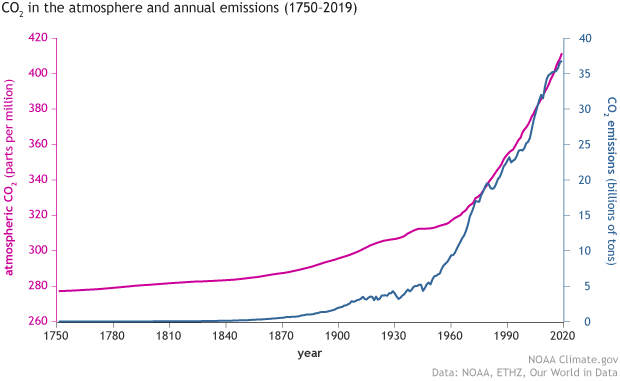Since the late 1800s, the U.S. has relied heavily on manufacturing of a variety of goods to support its economy. The Industrial Revolution brought great economic growth to America, but also a rapid decline in the health of our planet. In the last 50 years, climate change has become a polarizing political issue. Most Americans today believe that climate change due to CO2 emissions is occurring, but what should the government be doing about it? The issue of climate changes forces the government and the people to decide what measures should be taken to protect the planet while preserving the economy.

I personally believe that the federal government should be taking action. However, it is not the United States’ job to police other nations. Moving the entire world toward an environmentally sustainable future is best done by setting a good example. In the 1970s, the U.S. government developed a strategy to protect the environment. Under the Nixon administration, the EPA was created, and the Clean Air Act and Clean Water Act were passed. I believe that these actions have positively impacted the country to date, and provide a layer of environmental protection that can be built upon. While some may argue that the EPA is an example of government overreach, its purpose is to impose fair regulations on all businesses, and enforce federal legislation passed by Congress.
One issue with the current system is that the President has a lot of say in the EPA’s duties. The EPA administrator “serves at the pleasure of the President” and can change each time a new President is elected. Since power usually changes between Democrats and Republicans every few terms, there is very little consistency, and it is hard for new federal action to be taken. Along with the politicization of climate change, this has resulted in a decline in new climate change regulations. It would be more effective to appoint EPA directors to longer terms, and allow the EPA to create a wider range of regulations based on scientific and economic studies. The Supreme Court would still have a check on its power, making sure that all actions taken are constitutional.
Lastly, there is the viewpoint that the U.S. is on the edge of being pushed into a new era due to innovation from private companies. Large corporations like Apple, are using large amounts of funds to create sustainable manufacturing processes that generate less waste and release less CO2. Companies like Tesla are directly contributing to environment sustainability by creating new products such as electric vehicles and efficient batteries that could become common in the future.
For an effective approach to combatting climate change, everyone must compromise. It is a combination of government and private efforts that will lead to both a healthy planet and economy.
I like how you talk about both government regulation and private companies. I think it is important to have some regulation but where does it stop? If the federal government is imposing regulations does that means that every state will follow? Just like how marijuana was illegal by federal law but legal in many other states. So how do you think change should be imposed?